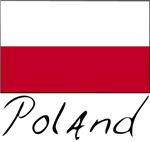Rich EU states must make concessions on climate deal, Poland says
 Brussels - The European Union's richest members must make concessions to their poorer peers if the bloc is to agree to a landmark deal on fighting climate change, a Polish minister insisted Thursday.
Brussels - The European Union's richest members must make concessions to their poorer peers if the bloc is to agree to a landmark deal on fighting climate change, a Polish minister insisted Thursday.
"We are as far from an agreement as we were in October ... It is really difficult to understand why a number of the most affluent member states ... are not really moving an inch," Polish Minister for Europe Mikolaj Dowgielewicz told journalists in Brussels.
Britain, Germany, the Netherlands and the Nordic states are "refusing to recognize" the specific problems that EU climate change proposals would cause in Poland, and thereby risk torpedoing negotiations, he said.
"A lot of countries which are very strict in negotiations are not prepared to work towards the agreement. I will not accept a situation where somebody would put the blame on Poland, Bulgaria and Romania for the failure of negotiations," he said.
At present EU nations are wrangling over a set of legal proposals from the bloc's executive, the European Commission, aimed at cutting EU emissions of carbon dioxide
(CO2, the gas most linked with global warming) to 20 per cent below 1990 levels by 2020.
Environmental groups say that a deal is vital in order to galvanize a broader international agreement on fighting climate change at a conference in Copenhagen in December 2009.
But a row between the EU's older and richer members and its poorer newcomers over the cost of the proposals threatens to derail talks, with both sides insisting that they have "red lines" which they will defend with a veto if necessary.
The row concerns the EU's proposal to strengthen a scheme which forces industries which emit large amounts of CO2, such as power generators, to buy permits to emit the gas - thereby making it more financially attractive for them to invest in low-CO2 technology.
Poland, which generates over 90 per cent of its electricity from highly-polluting coal, says that it cannot accept the EU proposal because it would massively boost power bills in the country and force it to become dependent on imports of gas from Russia.
"Do you think we'll turn off the lights and switch to gas? We won't do it, this is not a viable political scenario," Dowgielewicz said.
In mid-November the French government, which currently holds the EU's rotating presidency, offered a compromise allowing coal-dependent countries to give their power generators half of their emissions permits for free until 2016. Warsaw rejected the proposal.
Instead, the Polish government has proposed a system which would give free emissions permits to the most efficient power stations but oblige less efficient ones to buy some permits, thereby encouraging generators to clean up their production.
EU heads of state and government are set to debate the climate proposals at their annual year-end summit on December 11-12, with the French government lobbying intensively for a deal.
Polish leaders have already said that they will veto the climate-change package if their concerns are not met.
On December 6, French President Nicolas Sarkozy is set to meet the prime ministers of Poland and eight Central and Eastern European states which support it to try and find a compromise.
That meeting will be "the moment of truth," and will have to make "substantial progress" on issues such as electricity prices and controls on the price of CO2 emissions permits, Dowgielewicz said. (dpa)